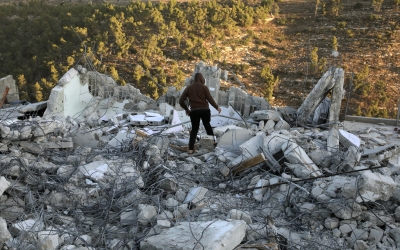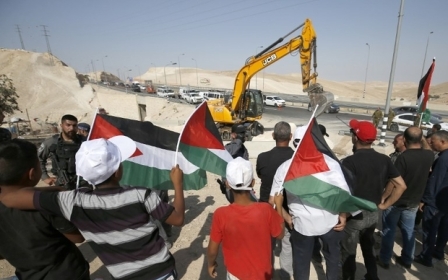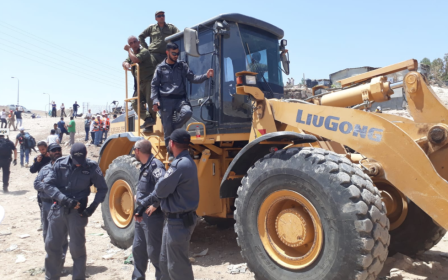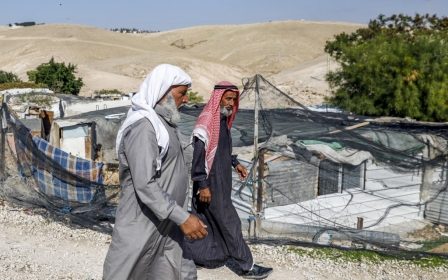Amnesty slams JCB over equipment used to demolish Palestinian homes
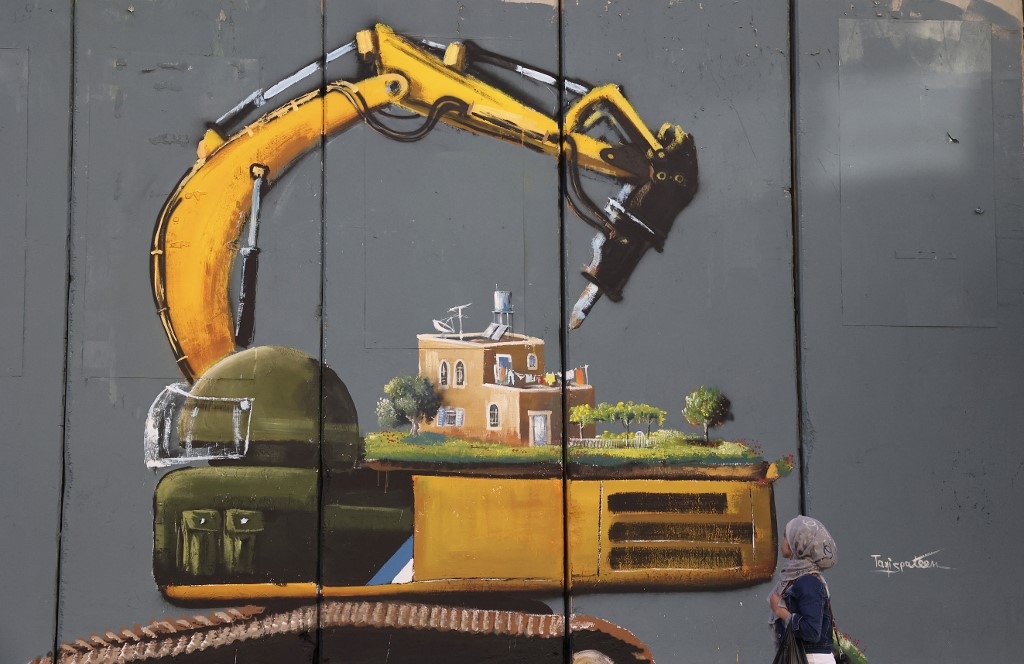
Amnesty International has accused British construction firm JCB of ignoring the sale of its bulldozers to the Israeli government, via its sole subsidiary in Israel, which it said used the equipment to demolish Palestinian homes in the occupied West Bank.
In a report released on Thursday, Amnesty International said JCB failed to take measures to prevent Comasco, its exclusive Israeli distributor, from selling and maintaining equipment such as bulldozers and diggers to Israel's ministry of defence.
The London-based rights group said there were dozens of specific incidents where JCB's equipment had been used to demolish residential and farm buildings belonging to Palestinians, along with pipes, olive trees and other agricultural produce.
Peter Frankental, Amnesty UK's Economic Affairs Programme Director, slammed JCB for its inaction and said the firm had the "technological and contractual means to counter" the use of its equipment by Israel to break international law.
"For many Palestinians, JCB's distinctive yellow and black bulldozers are an ominous sign of their impending homelessness,'
- Sacha Deshmukh, Amnesty
"No responsible company should stand by while its products are being used to violate human rights, especially when this has been happening for more than a decade as with the demolition of Palestinian homes in the Occupied Palestinian Territories," Frankental told Middle East Eye.
New MEE newsletter: Jerusalem Dispatch
Sign up to get the latest insights and analysis on Israel-Palestine, alongside Turkey Unpacked and other MEE newsletters
"It is entirely foreseeable that the equipment JCB sells to its sole agent in Israel will be used for the demolition of Palestinian homes and the construction of Israel's illegal settlements.
"JCB's failure to address the human rights impacts of how its machines are used in Israel's occupation of the Palestinian Territories is simply inexcusable."
Last year, the British government launched an investigation into claims that machinery built by JCB had been used in the demolition of Palestinian homes and construction of illegal Israeli settlements in the occupied Palestinian territories.
The UK National Contact Point (NCP), which is funded by the British government to independently investigate complaints against multinational companies for alleged breaches of human rights and other obligations, acknowledged a complaint against JCB submitted by British legal charity Lawyers for Palestinian Human Rights (LPHR).
Last week, the NCP said it was "unfortunate" that JCB "did not take any steps to conduct human rights due diligence of any kind despite being aware of alleged adverse human rights impacts".
A JCB spokesperson told Middle East Eye that it "does not condone any form of human rights abuse" and that it "does not contribute to, or is in any way responsible for, or otherwise linked to adverse human rights abuses in the Occupied Palestinian Territories, either directly or indirectly."
"These allegations have recently been the subject of a full independent investigation by the UK National Contact Point for the OECD Guidelines for Multinational Enterprises," the spokesperson noted.
"The recent conclusion by the UK NCP re-affirms its initial finding that there has been no wrongdoing by JCB. Specifically, the UK NCP conclusively found that the alleged human rights impacts cannot be linked to JCB’s business operations or contractual arrangements."
History of rights violations
JCB's operations in Israel have been mired in controversy and have faced heavy criticism from rights activists.
The company dominates the Israeli market with a 65 percent market share of all excavators and a 90 percent market share of commonly used loading vehicles in the country.
Earlier this year, JCB was on a list released by the UN Human Rights Council that said the construction firm had ties to Israeli settlements deemed by many global bodies to be in contravention of international law.
The council compiled the list and said the companies listed had facilitated the construction of settlements, supplied them with surveillance equipment, or provided security services to enterprises operating there.
In 2018, Middle East Eye revealed that JCB drilling equipment was used outside of Khan al-Ahmar, a Palestinian village in the central occupied West Bank long threatened with Israeli demolition.
JCB started to produce specially built military-grade construction vehicles in 1984. Through its offshoot JCB Defence Products, it has supplied 3,500 vehicles to the military forces of 57 countries.
"For many Palestinians, JCB's distinctive yellow-and-black bulldozers are an ominous sign of their impending homelessness and of more Palestinian land being stolen to make way for illegal Israeli settlements," said Sacha Deshmukh, Amnesty UK's CEO.
"Under international business standards, JCB has a clear responsibility to take measures to ensure its goods are not used in the commission of human rights violations - this should be viewed as an essential part of human rights due diligence."
MEE reached out to JCB for comment but did not receive a response by time of publication.
Middle East Eye delivers independent and unrivalled coverage and analysis of the Middle East, North Africa and beyond. To learn more about republishing this content and the associated fees, please fill out this form. More about MEE can be found here.


